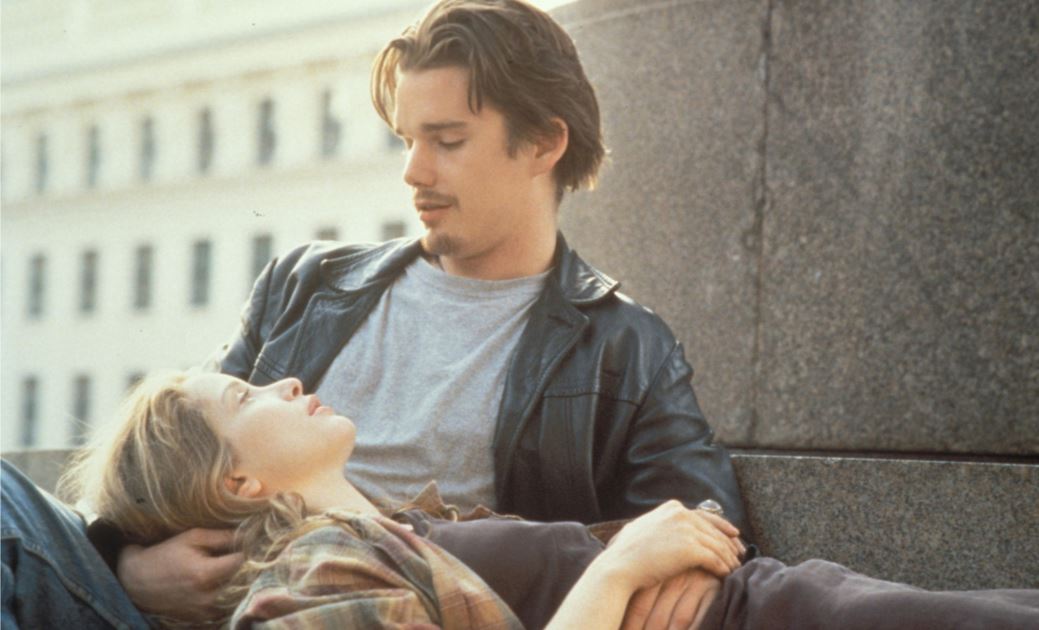Richard Linklater, an excellent director whose offerings have ranged from the Jack Black-starring ‘School of Rock‘ to the Oscar-winning ‘Boyhood’- will release his latest film, ‘Everybody Wants Some‘ in just a couple of months.
I’m hugely excited about this follow-up to Linklater’s breakout film ‘Dazed and Confused’, a favourite film of mine, but that classic film which helped to launch the careers of stars such as Ben Affleck and Matthew McConaughey can often be a tough film to sell even to my cinephile friends. The conversation usually goes something like this:
“So, eh, what happens in it?”
“Well, nothing much, really.”
Of course, after much cajoling, we usually end up happily zipping through nearly two hours of Texan teenagers just hanging out and the film is roundly praised and subjected to many a rewatch. But the initial assessment is still pretty accurate. The film consists largely of young people talking to one another. Their exchanges are woven together by Linklater’s wondrous ability to solidify the time and place of a piece of film, like it was forever encased in beautiful amber. The crusading staff of the school newspaper are such an excellent reflection on anxieties surrounding corruption and optimism about the power of journalism and the liberal class in a post-Watergate America.
Linklater, having grown up in the 70s himself, imparts all his affection for the period on the film in a way that doesn’t come off as doe-eyed and sappy, but as totally authentic and engrossing. His dialogue aids this by being simultaneously relaxed, banal and witty in a way that is both entertaining and believable. McConaughey’s character is an immortal sleazeball, the kind of archetypal townie who never grew beyond high school and continues to leer at underage girls far beyond the time when his hairline begins to recede. And yet Linklater doesn’t look down on him, but views him as a natural part of the small town aesthetic that gives the film its touch of both specific nostalgia and near universal relatability.

Of course. the greatest testament to Linklater’s ability to construct films built entirely of human dialogue that grip the attention and entertain to no end is the Before trilogy. Beginning with Before Sunrise in 1995 and ending with 2013’s Before Midnight the films chronicle the romantic relationship of two idealistic young people, Ethan Hawke’s American Jesse and Julie Delpy’s French Celine, and the conversations they have as they happen to meet around a number of scenic locations are Europe. For what is effectively 6 hours of two people talking it is a trilogy of films I have rewatched in its entirety about 5 times now. That’s about 30 hours of two people blabbing at each other, and just writing this I’m getting the urge to watch it again.
This is all because Linklater’s dialogue, which is often formed in a collaborative process between his script and the actor’s improv, is so utterly captivating in natural. In Hawke and Delpy’s conversation, you see ideas from the afterlife to the Iraq War being discussed and yet each of these universal issues carefully teases out portions of the individual characters as well as slowly adding to their developing relationship. The beautiful landscapes such as Vienna and Paris merely become incidental backgrounds, set dressing for the characters to interact with in some verbal exchange that will distinguish them as individuals and as romantic partners to the audience.
Most extraordinary in terms of Linklater’s ability to convert simple dialogue into a wild piece of entertainment is his underappreciated 2001 film Waking Life. It centres around a young man trapped in a lucid dream who is the recipient of a number of unusual conversational vignettes which range from speakers as diverse as conspiracy theorist Alex Jones to Ethan Hawke’s and Julie Delpy’s characters from the Before trilogy.
The topics range from the functioning of a police state to the transmigration of the soul and each cartoonish, rotoscoped tirade adds to the sense of a fever dream atmosphere which pervades the film. The zipping from topic to topic has the schizoid feeling of dream logic which is only anchored by Linklater’s gift for writing dialogue which hooks us to one topic while keeping us rooted in the broad thematic concerns of the film. As well as this, Linklater has an ability to make dialogue sound natural and human, an ability that often escapes the likes of Aaron Sorkin whose dialogue, while immensely entertaining, can often come across as engineered and stilted.
While the upcoming ‘Everybody Wants Some‘ may indeed be another example of a couple hours of “people just talking” if the conversation is half as good as it usually is, I’m sure to be listening in.
Some of the coverage you find on Cultured Vultures contains affiliate links, which provide us with small commissions based on purchases made from visiting our site. We cover gaming news, movie reviews, wrestling and much more.


